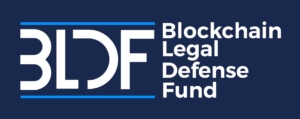The Legal Battle of Pavel Durov and Telegram Over TON Blockchain
In the dynamic world of blockchain and cryptocurrency, legal battles often make headlines, reshaping the regulatory landscape and influencing the future of digital assets. One such case involves Pavel Durov, the founder of Telegram, and his ambitious project, the Telegram Open Network (TON). Despite its potential to revolutionize digital communication and transactions, TON faced significant legal hurdles from the U.S. Securities and Exchange Commission (SEC).
Background on the TON Blockchain
The TON blockchain was announced in 2018 to create a decentralized platform capable of processing millions of transactions per second. At its core was the Gram token, which Telegram positioned as a new digital currency. To fund this project, Telegram conducted a private sale of Gram tokens, raising $1.7 billion from investors globally. The success of this fundraising effort underscored the enthusiasm surrounding TON and its promise of a high-performance blockchain capable of competing with existing payment systems.
SEC’s Crackdown on TON
However, in October 2019, the SEC intervened, filing an emergency action to halt the distribution of Gram tokens. The SEC argued that the tokens were unregistered securities, meaning Telegram should have registered the offering with the SEC and provided investors with necessary disclosures under U.S. securities laws. The SEC’s action was based on the Howey Test, a framework used to determine whether an asset qualifies as a security. According to the SEC, Telegram’s sale of Gram tokens met this criterion because it involved an investment of money in a common enterprise with an expectation of profit derived from the efforts of others.
The Legal Proceedings and Court Rulings
In March 2020, a U.S. District Court sided with the SEC, granting a preliminary injunction to prevent Telegram from distributing Gram tokens. The court ruled that the SEC had demonstrated a substantial likelihood of proving that the sale of Grams constituted an unregistered securities offering. This decision effectively ended the TON project, as Telegram was forced to abandon its blockchain ambitions and return $1.2 billion to investors.
Implications for Blockchain Projects
The legal battle between Telegram and the SEC set a critical precedent for blockchain projects, especially those involving token sales. It highlighted the importance of compliance with securities laws and the risks associated with conducting token offerings without proper regulatory approval. The case also underscored the need for clear guidelines regarding the classification of digital assets, which remains a contentious issue within the crypto community.
Future Considerations
Looking ahead, blockchain projects must navigate a complex regulatory environment to avoid similar legal setbacks. Developers and entrepreneurs should engage with legal experts early in the process to ensure compliance with applicable laws. Moreover, as regulatory scrutiny intensifies, there is a growing need for clearer regulatory frameworks that balance innovation with investor protection.
The legal battle over TON serves as a cautionary tale for blockchain developers and investors alike. While the promise of decentralized networks is enticing, navigating the regulatory landscape is crucial for ensuring the long-term viability of blockchain projects. As the blockchain space continues to evolve, legal compliance will remain a key consideration for anyone looking to innovate in this field.





Leave a Reply
Want to join the discussion?Feel free to contribute!